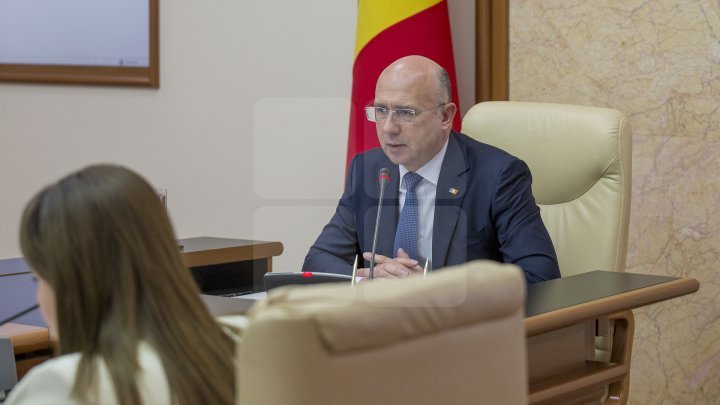Interview. Pavel Filip: 112 Service will bring Moldova closer to European Union
 foto: Pavel Filip
foto: Pavel Filip
Prime Minister Pavel Filip offered an interview to AIS MOLDPRES before the launch of 112 service.
MOLDPRES: The initiative to create the 112 service in Republic of Moldova appeared while you were still Minister of Informational Technologies and Communications of Moldova. What pushed you to create this project? What were the base ideas and why did it take so long to implement?
Pavel Filip: Truly, this project came to me 6-7 years ago, to offer citizens safety. Knowledge that authorities will rapidly interfere when necessary. The 112 project will combine separate services managing the police, ambulance and firefighters. Now, there will be a common emergency number, making it easier for citizens to request help.
When this project has only begun, the communications infrastructure started developing, but modernization completely lacked in terms of emergency communications, posing an issue for both citizens and authorities. Of course, we wished to create advanced security standards present in European countries. It became the reason why this service was created, to offer more safety and protection to people and their belongings, make emergency services more efficient.
Despite the fact that we managed to elaborate and approve in 2014 a law for this, it was followed by a difficult step, which affected the timeline of this project. There were political issues, causing the project to slow down. When I became Prime Minister, this project became a priority for the executive. We managed to approve it fast and start the procedure. The legal framework was elaborated, necessary resources and headquarters offered. At the same time, equipment and system necessary for this institutions were delivered. The staff was employed and trained. I wish to mention that from 200 applicants, only 38 were selected. This job has many responsibilities and requires professionals.
We passed all those stages and reached the point where emergency services had to be reset, both in the civil electronic communications networks, as well as in the specialized emergency services. The 112 service is already binding those two links, bringing new technologies and efficiency. We have one aim: to offer modern services and safety for citizens, facilitating interaction with authorities. Today we can say that the project was actually launched two months before the estimated release date.
MOLDPRES: The idea to create the 112 service is based on the latest practices from EU member states. Please share with us, the experience of which EU countries was studied and used? What are the advantages of the 112 service in Republic of Moldova?
Pavel Filip: When the idea was first created, at the ministry I studied the best practices used in Europe, which became the base of the 112 service law. I examined the European legal framework, as well as the experience of Northern states and of Romania, which had the best ratings in this field.
In 2015, with the support of development partners, we contacted one of the best international consulting companies, that carried out a Feasibility Study on supporting the technical concepts and operating regulations of the Service.
The launch of 112 Service will bring us one step close to the European Union, where it is already used. European integration is made with small, but sure steps. Once this system will be implemented, our citizens will have same emergency services as in European countries, so that when faced with an emergency, they will feel at home just like in EU member states.
The common emergency number 112 has many advantages, but I believe the most important one is that once implemented, citizens will have more safety and emergency services will be able to manage any situation faster.
Informational technologies do not only save money and allow us more efficient management, but also offers a more clear picture of the situation the caller is facing. The software used in Moldova for the 112 service is also the latest one, it being used in only 1 or 2 other countries from Northern Europe.
112 Service offers many functions, such as: creation of a file the moment a call is received, monitoring the situation to its end and archiving data, pinpointing real time geographical location of the call, offering the citizen information on all emergency services working on the case, possibility to interact with emergency services through video calls when necessary and filtering prank calls.
When the operator has such information, it greatly increases the efficiency of emergency services and resource management. For example, when a person calls 901, 902 or 903, they are questioned on average for 2 minutes. The 112 service will decrease it by three times, because the system can automatically recognize the person by name and surname, also offering a location, registering the information fast, causing the questioning time to decrease by 40 seconds.